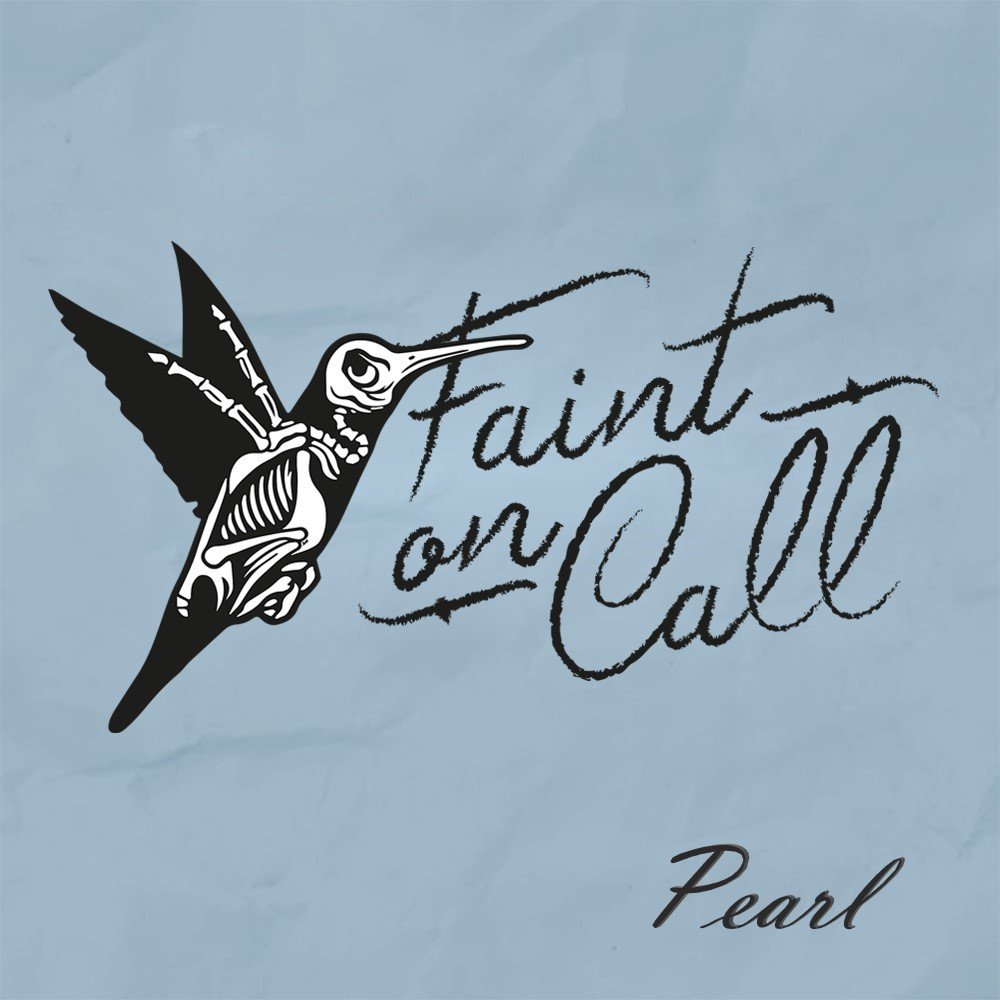Faint On Call is a band born during lockdown, with a hybrid sound combining alternative shoegaze post-grunge from the 1990s and melody-driven rock from the 1980s. It’s that feeling of having heard these songs previously but being unable to place or date it. The hooks and thick hypnotic layers complement the heaviness and optimism of the lyrical imagery, which could have only been inspired by Covid 19’s bleak seclusion.
Throughout 2020 and 2021, the founding members, Tobias Hawkins, Cristian Hernandez, and Arthur McConnell, challenged each other’s songwriting abilities via music apps and emails. The new group, comprised of former members of Counting Crows, Laundry, Onesidezero, etc., has released their new track “Pearl” on all streaming platforms. What began as a collaboration amongst friends during lockdown has now materialized as a virtually complete full-length album, the first track of which is “Pearl.” Along with the album, the song was co-produced, engineered, and mixed by acknowledged industry veteran Sylvia Massy, who is responsible for many of rock’s most famous albums, such as Tool’s Undertow, amongst countless others. Check out the song and the exclusive interview with Cristian Harnandez below:

1. Can you tell us a bit about where you come from and how it all got started?
CRIS: In the pandemic while we were all locked up, Art asked Cris to write to a groove he had and send each other some song ideas through an app called Spire. A few songs later, Art asked Tobias Hawkins (of Counting Crows, Laundry fame) to be part of the project, and the rest is history.
2. Did you have any formal training or are you self-taught?
CRIS: I think we all have some level of formal training and we also learned much along the way since we all played in multiple bands.
3. Who were your first and strongest musical influences and why the name ‘FAINT ON CALL’?
CRIS: First musical influences was always my dad’s favorite bands. The Beatles, Pink Floyd, Led Zep. As I developed my on taste in music I got in to bands like: Pearl Jam, Soundgarden, RATM, Helmet. Faint On Call was Toby’s idea. It has some cool connotations and the words flowed well together.
4. What do you feel are the key elements in your music that should resonate with listeners, and how would you personally describe your sound?
CRIS: I guess we’ve classified as Shoe gaze, 80’s/90’s cross over. Obviously Toby’s melodies are very trademark of our sound. I’ve always delved in to complex harmonies and chord progressions. You can definitely hear that in our music.

5. For most artists, originality is first preceded by a phase of learning and, often, emulating others. What was this like for you? How would you describe your own development as an artist and music maker, and the transition towards your own style, which is known as ROCK?
CRIS:
Well, I think between Art, Toby, and Me, we have about 90 years of experience writing. So, we’re definitely at the point where we don’t give a crap what we are emulating or what people compare us to. We write because we need too. At least for me, you are on point with the development of my writing. I tried being groundbreaking, emulating, and eventually I learned to just enjoy my writing. That’s a huge reason why I got in to producing as well. I felt there wasn’t enough good music around, so I decided to help musicians write good records and in turn, I get something I enjoy listening to.
6. What’s your view on the role and function of music as political, cultural, spiritual, and/or social vehicles – and do you try and affront any of these themes in your work, or are you purely interested in music as an expression of technical artistry, personal narrative, and entertainment?
CRIS:
I think there’s a place for music in all those forums. All music has started as a political or social statement. Blues, Salsa, Metal, Rap, (and many others), they all started with people that wanted to make a statement. This record though, became more of a personal narrative for Toby. For me, as the main composer, it was about creating a mood, a sound scape. What was great is that Toby tuned in to the feelings being portrayed by my music and the lyrics make a lot of sense with the vibe of the songs.
7. Do you feel that your music is giving you back just as much fulfillment as the amount of work you are putting into it or are you expecting something more, or different in the future?
CRIS:
We, as all musicians, want to be heard. Every person, that gives us a like, a comment, a stream, gives us that fulfillment. And no amount of work is too much to get one’s music out there.
8. Could you describe your creative processes? How do usually start, and go about shaping ideas into a completed song? Do you usually start with a tune, a beat, or a narrative in your head? And do you collaborate with others in this process?
CRIS:
This record was a very particular process. It was all inspired by a groove Art sent me. I wrote a guitar part to it and had the whole song fleshed out in about 10 minutes. It’s Pearl, our first single. But after Toby and I met (through emails and phone, never met in person before), we just took off writing about a song a week. I would compose a finished instrumental song and send it to Toby. He in turn would send a take with vocals. We’d talk and focus on certain hooks, maybe rearrangements, and sometimes Toby would send me a second take. And that was it.
9. What has been the most difficult thing you’ve had to endure in your life or music career so far?
CRIS: In my life, would be the death of my dad, last month. That was very surreal and very stressful. As for my career, the changing of the music business. I barely understand it today. There’s a lot of studying to do.
10. On the contrary, what would you consider a successful, proud or significant point in your life or music career so far?
CRIS: There are many points I consider successful, the first one being singed with my old band Onesidezero to Maverick. Those were good times. Of course recently, writing and producing Faint On Call with Sylvia Massy is a highlight of my career.
11. With social media having a heavy impact on our lives and the music business in general, how do you handle criticism, haters, and/or naysayers in general? Is it something you pay attention to, or simply ignore?
CRIS: Luckily, I haven’t seen any hating, but as I had mentioned before, we write because we need to. We are to the point that it is art in its purest form. The haters don’t really make a difference.
12. Creative work in a studio or home environment, or interaction with a live audience? Which of these two options excites you most, and why?
CRIS: Both!! This experience with the Faint On Call recording has been one of the most fulfilling times of my life. We all were in a great place and wanted to be creative. Sylvia Massy was also fantastic at getting our best expressions of our music. However, live? Ooof, that connection with a crowd, when it clicks and you see that people just loose it, it’s awesome. I’m getting chills just thinking about it.
13. Do you think is it important for fans of your music to understand the real story and message driving each of your songs, or do you think everyone should be free to interpret your songs in their own personal way?
CRIS: Our songs have very deep messages. I think some of them are very obvious, but I’d be inclined to let people interpret them. That’s how the songs become their own.
KEEP IN TOUCH:
FACEBOOK | INSTAGRAM | SPOTIFY | WEBSITE

Photo credits: Jorge Cazares
